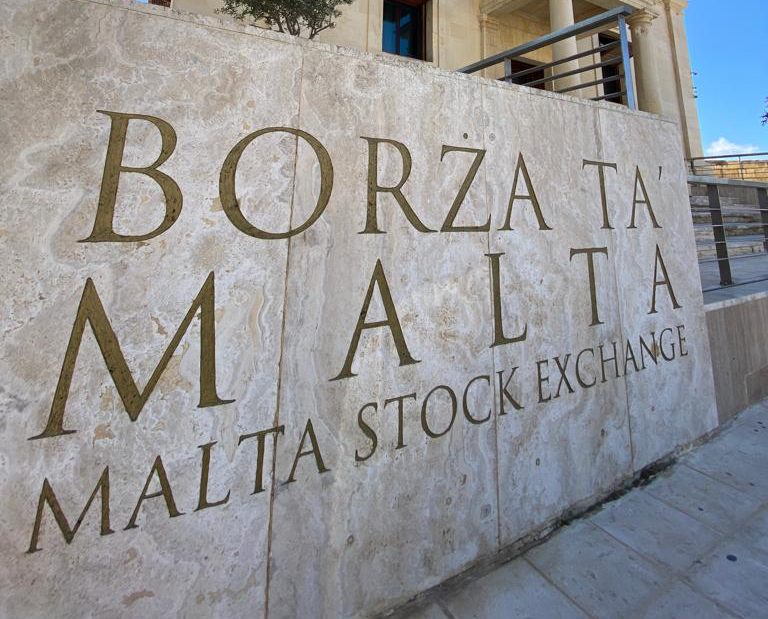Following the €50 million rights issue by Lombard Bank Malta plc in Q4 2023, another equity raise is being planned in Malta – this time by Malita Investments plc. The company held an Extraordinary General Meeting (EGM) in mid-December to obtain shareholder’s approval on a number of changes in conjunction with the upcoming €33 million rights issue.
This article is not intended to discuss the specific mechanics of the rights issue or the analysis of the cost over-runs behind the Affordable Housing Project that led to the requirement for additional funding by the company. Instead, an interesting feature that emerged in the documentation presented to shareholders before the EGM in mid-December is the derogation obtained by Malita from the MFSA in terms of Capital Markets Rule 3.26.
This rule relates to the minimum percentage holding of shares which must remain in public hands which is often referred to as the ‘free float’. In view of the conversion of the company’s share capital into one class of shares (Malita had previously been structured with different share classes at the time of its IPO in 2012), and the admission to listing and trading on the Official List of the Malta Stock Exchange of the entire issued share capital of the company, a derogation was sought and obtained in August 2023. This was needed since upon the change in the share capital to one class of shares, less than the minimum 25% of the company’s total issued share capital would be held in “public hands”. In fact, following the admission to the entire issued share capital at the end of December 2023, the Government of Malta currently holds circa 80%, so the free float is currently at 20% which is below the 25% limit stipulated in Capital Markets Rule 3.26.
Interestingly, in the circular to shareholders published ahead of Malita’s EGM, it is stated that “The Board of Directors is of the view that the conversion of the Company’s two classes of shares into one class of shares will simplify the Company’s capital structure and enhance prospects for increased liquidity going forward”. Some may debate the statement of the increased prospects for an improvement in trading activity in Malita’s shares which is invariably tied to whether the Government of Malta would intend to reduce its 80% stake. Given the critical infrastructure forming part of Malita’s portfolio, namely the ‘directum dominium’ of the Malta International Airport and the Valletta Cruise Port, this would be unlikely indeed.
However, it does merit a debate on whether the specific requirements of Capital Markets Rule 3.26 is precisely restricting liquidity in specific equities across the market.
Apart from the latest derogation obtained by Malita, in the past there were other similar derogations obtained by companies who breached the free float percentage due to the entry of additional large shareholders and other corporate actions in companies such as International Hotel Investments plc, FIMBank plc and Grand Harbour Marina plc.
Meanwhile, other companies that had been listed prior to the enactment of this rule had already been below the 25% free float limit and rightly so, were not required to move in line with this stringent limitation. For example, the three controlling shareholders of Simonds Farsons Cisk plc hold just over 79% of the company while in the case of Mapfre Middlesea plc, the two largest shareholders have a combined stake of over 85%.
In view of the derogations in force and other legacy issues, we now have a situation across the equity market where there is a wide mix of free float percentages across the companies. As a result, the authorities need to gauge the effectiveness or otherwise of maintaining the current requirements of Capital Markets Rule 3.26 going forward.
The current free float requirement may inhibit certain important developments to take place such as the ability for companies to conduct share buybacks or new large investors taking important stakes in a company. These are exactly some of the transactions that are required to reduce the evident share overhang across a number of equities arising from the very difficult environment over recent years. Other companies may indeed require the addition of new sizeable shareholders for their expansion, whether locally or overseas.
Moreover, as highlighted before in some of my articles, the current 25% limit threshold invariably also precludes large established companies to list their equity given the natural restrictions of the size of the domestic capital market. As such, any free float limits, should be based on the size of a company and not the same limit for all companies without taking into account the market capitalisation.
In my view, the reduction in the free float requirement is one of the many reforms that need to take place across the capital market to hopefully instil greater enthusiasm among the investor community and generate added participation including additional companies seeking a listing on the MSE. A number of important capital market reforms have taken place over the years in some of the large financial centres (vide the UK and Japan) and the Maltese authorities should follow suit to revive the local capital market following the severe setbacks over the past four years. The various authorities need to urgently devise a well-articulated plan for the Maltese capital market. In many countries, the state and performance of the capital market is regularly debated in public fora and given utmost importance given the impact on overall consumer sentiment. The various forms of intervention taking place in China at the moment to help the equity markets recover including government support to instigate inflows in the market, is another very important example in this respect. Unfortunately, turning back to our situation in Malta, there is a growing feeling of a country lacking a plan for its capital market.
Read more of Mr Rizzo’s insights at Rizzo Farrugia (Stockbrokers).
The article contains public information only and is published solely for informational purposes. It should not be construed as a solicitation or an offer to buy or sell any securities or related financial instruments. No representation or warranty, either expressed or implied, is provided in relation to the accuracy, completeness or reliability of the information contained herein, nor is it intended to be a complete statement or summary of the securities, markets or developments referred to in this article. Rizzo, Farrugia & Co. (Stockbrokers) Ltd (“Rizzo Farrugia”) is under no obligation to update or keep current the information contained herein. Since the buying and selling of securities by any person is dependent on that person’s financial situation and an assessment of the suitability and appropriateness of the proposed transaction, no person should act upon any recommendation in this article without first obtaining investment advice. Rizzo Farrugia, its directors, the author of this article, other employees or clients may have or have had interests in the securities referred to herein and may at any time make purchases and/or sales in them as principal or agent. Furthermore, Rizzo Farrugia may have or have had a relationship with or may provide or has provided other services of a corporate nature to companies herein mentioned. Stock markets are volatile and subject to fluctuations which cannot be reasonably foreseen. Past performance is not necessarily indicative of future results. Foreign currency rates of exchange may adversely affect the value, price or income of any security mentioned in this article. Neither Rizzo Farrugia, nor any of its directors or employees accepts any liability for any loss or damage arising out of the use of all or any part of this article.
Featured Image:
Malita Investments p.l.c. has developed internationally-recognised projects inluding the Maltese Parliament (in picture), Valletta City Gate, Open-Air Theatre and the construction of affordable housing all around Malta.
Reinventing the single market: Strategic vision and bold reforms for Malta and Europe
Proposed reforms present significant opportunities and formidable challenges for our small island nation
The equity market in pre-COVID times
Investor sentiment has evidently failed to recover from the series of shocks since the start of 2020
Interest rate divergence ahead?
Inflation is falling faster than forecast in Europe, while exceeding expectations in the US







